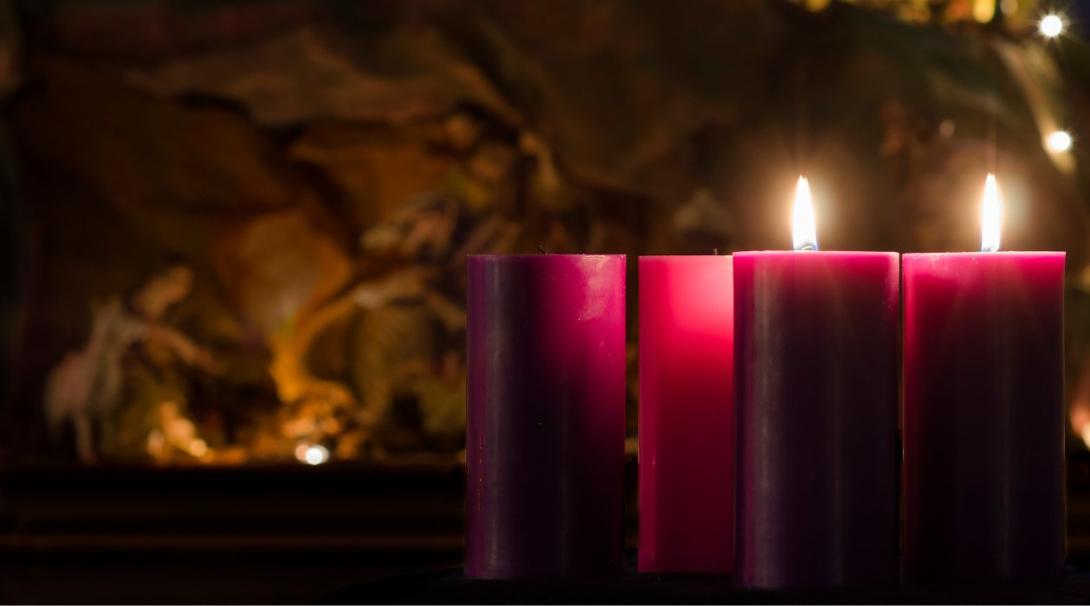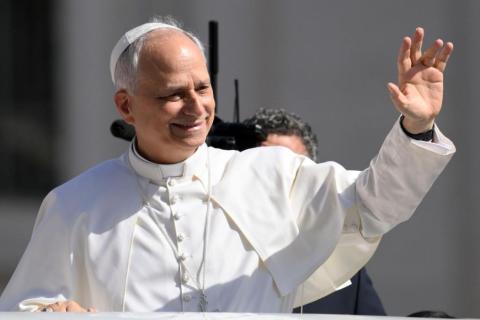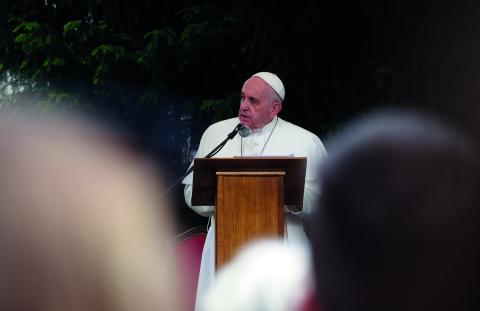
lmissenda in Getty Images
It was the fifteenth year of Tiberius Caesar. Pontius Pilate, Herod, and Philip all rule over various regions of the empire. Luke very deliberately sets up his story in the exact time and place that all of these things take place.
This is not the first time that some of these leader’s names have come up in Luke’s gospel, even though we are only in chapter 3 on the second Sunday of Advent. In the first two chapters, Luke sets the scene for the miraculous births of both John the Baptist and Jesus of Nazareth. John’s birth is miraculous because both of his parents are advanced in years, and have not had any other children. John’s birth story is interwoven with that of Jesus, as their mothers, Mary and Elizabeth, are cousins and go to spend time with one another while preparing for their babies to be born.
Luke also makes sure to mention that Caesar Augustus is the one to decree that all people must return to their hometowns and register. It is the reason for Mary and Joseph’s pilgrimage to Bethlehem, the reason Jesus is born on the road, placed in a manger in a barn instead of safely in a bed at home. But that’s a story for Christmas Day. Right now, we’re still preparing.
There’s a social media phenomenon that’s been going around for a couple years now, “in my [fill in the blank] era” where people talk about what’s going on in their life by framing it as an era. This was made even more popular by the Taylor Swift “Eras Tour,” just concluded, where she basically performed a career retrospective in one concert with each album or era of her music represented. So now people talk about being in their sporty era, or dating era, single era, wellness era, or a self-care era. I saw a lot of “in my voting era” merchandise leading up to the election. You name it, there’s probably already a Tiktok with someone in that era.
I don’t think of this as necessarily new. I try to remember when certain events happened in my life based on what else was going on at the time, or what “era” I was in. Maybe you do this too; was it before or after we were married? Before or after we had kids? Grandkids? Before or after a loved one died? What events do you use to define your personal eras?
Advent is the season of preparation for Jesus’ birth. We prepare our hearts to welcome God into our lives anew, remembering that Jesus came to earth in a particular time and place, as Luke reminds us, but Jesus also comes to us still today.
Advent is the season of preparation for Jesus’ birth. We prepare our hearts to welcome God into our lives anew, remembering that Jesus came to earth in a particular time and place, as Luke reminds us, but Jesus also comes to us still today. In church we light the second candle on the advent wreath to represent peace. And so, I would like you to consider what it might mean for us to be in our “peace” era. What comes to mind when you think of peace?
You might have heard the term “Pax Romana” or “peace of Rome” to describe the relative peace that accompanied the dominance of the Roman Empire in the time that includes Jesus’ life and death. The Roman Empire, as you might know, was made up of a whole bunch of conquered peoples living separately from one another. The empire deliberately kept different people separated from one another, so that they couldn’t organize together or combine their efforts against the authorities. The people were physically divided; kept in their own little bubbles, kept in their place with no chance for moving up or moving out. These small divided groups didn’t stand a chance against the powerful force of the empire.
Everyone was expected to conform to the empire’s expectations; everyone was uniform, everyone was the same. So, in that way, there was “peace” because everyone was kept in their place and no one questioned the authority. Because if you did, you would probably be executed and your death would be used as an example for anyone else who wanted to question the empire.
This is what “peace” looks like in Rome in the Gospel of Luke: everyone is forced to believe the same things, worship the Roman leaders, know their place and stay in it. So yes, there is a lack of conflict, but is this so-called era of peace really peaceful?
It’s in this setting that Luke introduces a fully-grown John the Baptist. When last we heard, he had just been born, his father had named him John, as the angel instructed, and we knew he would do great things. Now, he emerges from the wilderness and proclaims an era of repentance: all people must re-evaluate their lives and re-align themselves to God. As the prophet Isaiah says, prepare a royal highway for God; the very landscape of the earth will change; mountains made low and valleys made level, crooked paths becoming straight; “and all people will see God’s salvation.”
A peace defined not by a lack of conflict, but by the presence of Love.
John goes ahead of Jesus to prepare the way. To tell the people that Jesus is literally coming in behind him and that Jesus is something special. Jesus is something new. Jesus comes promising a different kind of peace. A peace where all are known and all are loved for who they are. A peace defined not by a lack of conflict, but by the presence of Love.
God’s peace is radical. We see that in the way God shows up for an older couple with no children and sends them a son named John; how God chooses to become human themself, and be born to a young virgin woman who isn’t even married yet but has the courage to say “yes.” Jesus brings a peace that doesn’t just go along to get along; this new era of peace stirs up trouble, questions authority, associates with outcasts and sinners and prostitutes and tax collectors and people who have been told that they are not enough. This new era of peace dares to ask why things must be the way they have always been. Because God’s peace is for everyone, and God’s love is for everyone, just the way they are.
Jesus comes to earth, as a human being, in a very specific and very real time and place, to bring peace to a people that desperately needed it. And Jesus continues to appear to us, in our lives, in real and specific ways to bring us the peace we desperately need. God’s presence isn’t just an abstract concept; it’s not some story that we tell about a faraway land or make-believe town. It can be hard to believe, for sure, but it happened in a real way in a real time in human history.
And it happens still for us, today. Jesus shows up in our hearts and in our lives, a real presence and constant presence for us. In what remains of this Advent season, I invite you to imagine what a new kind of peace could look like. Not a peace that is “peaceful” the way we might have thought of it, but a peace that seeks to affirm all people. A peace that stands up for what is right. A peace that advocates for legislation that benefits all people. A peace that feeds the hungry, houses the homeless, provides for the poor.
May we be willing to accept God’s peace in our lives, and experience a new kind of peace that welcomes everyone.












